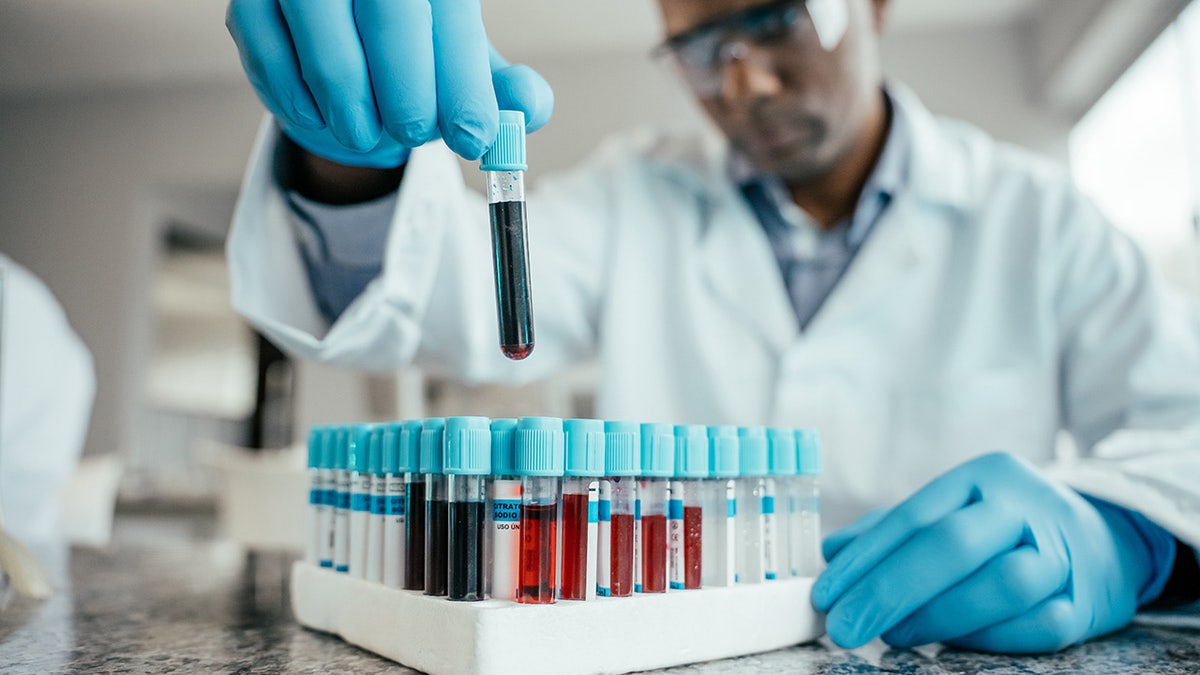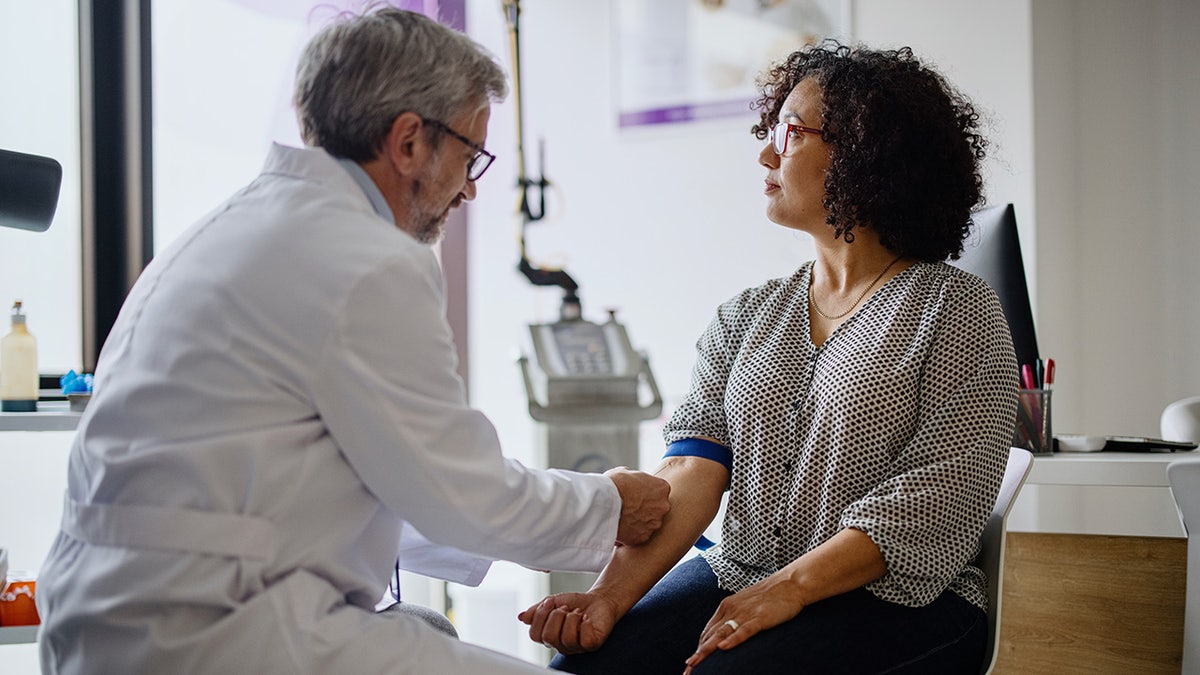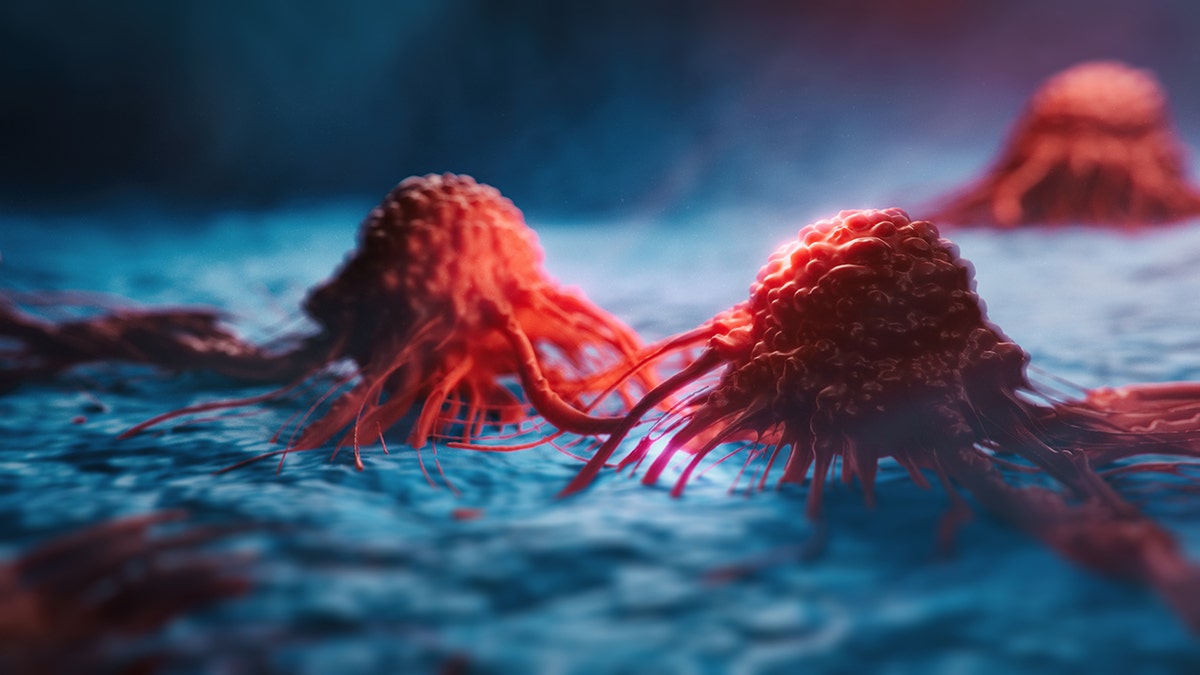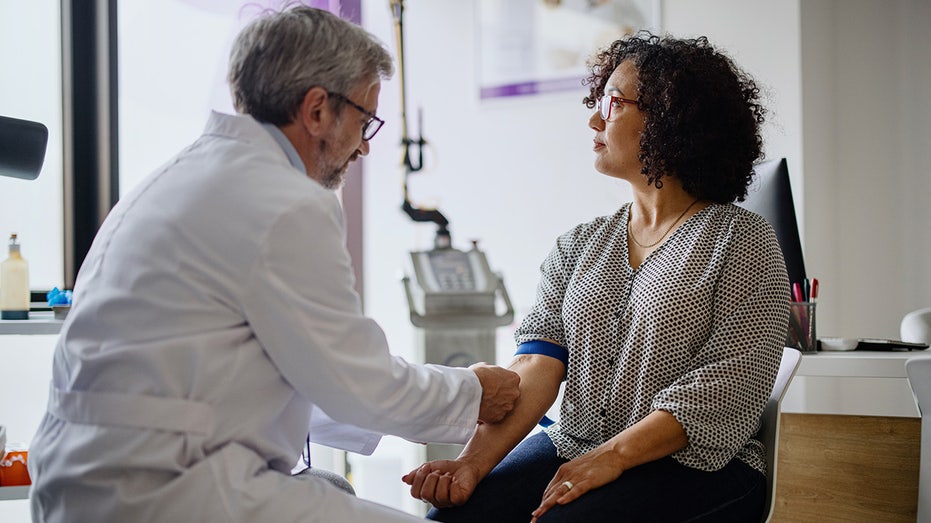NEWYou can now listen to Fox News articles!
Researchers at Johns Hopkins University say they have uncovered an advanced method for detecting cancer.
A new study, published in the journal Cancer Discovery and partly funded by the National Institutes of Health, found that genetic material shed by tumors can be detected in the bloodstream three years prior to a cancer diagnosis.
The researchers analyzed plasma samples from a large Atherosclerosis Risk in Communities (ARIC) study to assess risk factors for heart attack, stroke, heart failure and other cardiovascular diseases, according to a press release.
FDA APPROVES FIRST AI TOOL TO PREDICT BREAST CANCER RISK
Blood samples were analyzed from 26 participants who were diagnosed with cancer within six months of sample collection, and 26 who were not diagnosed with cancer.
Out of these 52 participants, eight scored positively on a multi-cancer early detection (MCED) lab test and were diagnosed with cancer within four months following blood collection.

MCED tests are an experimental type of cancer screening that looks for signs of multiple types of cancer at the same time, according to the American Cancer Society.
These signs may include pieces of DNA, RNA or proteins from abnormal cells.
CLICK HERE TO SIGN UP FOR OUR HEALTH NEWSLETTER
For six of these eight individuals, researchers were able to assess additional blood samples that were collected 3.1 to 3.5 years prior to diagnosis.
In four samples, researchers identified tumor-derived mutations (genetic alterations within cancer cells).

Lead study author Yuxuan Wang, M.D., Ph.D., assistant professor of oncology at the Johns Hopkins University School of Medicine, shared with Fox News Digital that she and her fellow researchers were “very excited” to discover cancer could be detected several years before symptoms emerge.
“For cancers of any stage, therapy is more effective when delivered earlier,” she said.
CLICK HERE TO GET THE FOX NEWS APP
“As a medical oncologist, I see mostly patients who have advanced cancers. Sadly, for the majority of these patients, treatments are aimed at prolonging life rather than curing their disease.”
She added, “If cancers can be detected three years earlier, they are much more likely to be curable by surgery or other therapies.”

Wang emphasized that earlier cancer detection is “key” to reducing cancer deaths.
“Future efforts should be directed toward developing reliable tests that can achieve such very early detection and making them available to patients,” she said.
For more Health articles, visit www.foxnews.com/health
Detecting cancer years before a clinical diagnosis could help “provide management with a more favorable outcome,” said senior author Nickolas Papadopoulos, Ph.D., professor of oncology and Ludwig Center investigator, in a statement.
“Of course, we need to determine the appropriate clinical follow-up after a positive test for such cancers,” he added.
Health News Today on Fox News
Read the full article .


